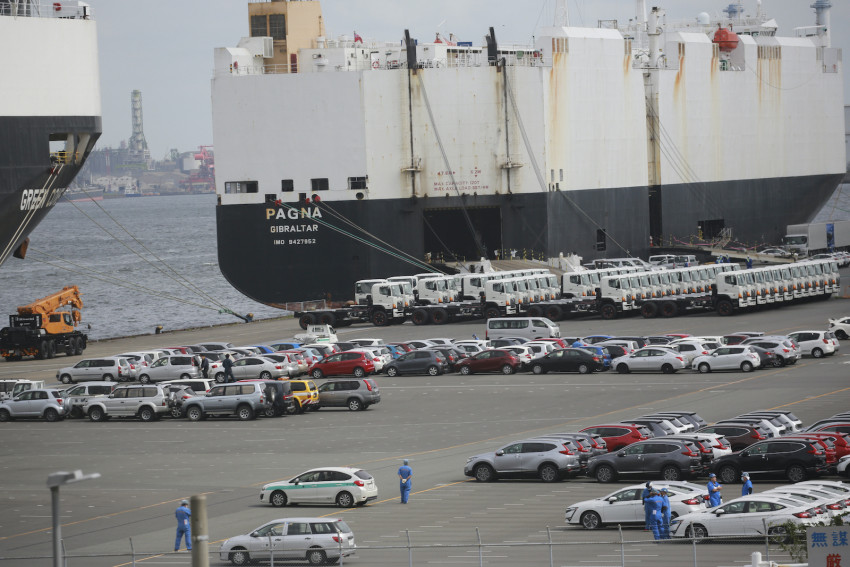Japan's car exports keep plunging due to supply issues

Japan's car exports continued to plunge in October, seeing a 36.7 percent fall from a year earlier amid a parts and semiconductor shortage that led domestic automakers to reduce production, government data showed Wednesday.
Although the pace of decline slowed from a 40.3 percent fall in the previous month, it was the second straight monthly fall in car shipments on year, causing growth in Japan's overall goods exports to decelerate to 9.4 percent from 13.0 percent in September, according to a preliminary report by the Finance Ministry.
Goods exports amounted to 7.18 trillion yen ($62.5 billion), failing to post a double-digit percentage rise for the first time in eight months, the ministry said, in a development that could slow the recovery of the world's third-largest economy from the impact of the coronavirus pandemic.
Since around the summer, Japanese automakers have been forced to cut output on the back of a global chip crunch and parts supply disruptions in Southeast Asia caused by a surge in COVID-19 infections there.
"Car exports are believed to have already bottomed out based on the production plans of automakers, but whether they will move toward normalization soon is still uncertain" as the semiconductor shortage is expected to drag on, said Kazuma Maeda, an economist at Barclays Securities Japan Ltd.
"The supply issue will remain as a risk factor to suppress Japan's exports at least until the first half of next year," Maeda added, referring to a recent slowdown in the Chinese economy as another matter of concern.
Imports jumped 26.7 percent to 7.25 trillion yen, up for the ninth month in a row, as prices of crude oil from such producers as the United Arab Emirates remained at high levels and the Japanese yen weakened against the U.S. dollar.
As a result, Japan's trade balance registered a deficit of 67.37 billion yen, turning negative from a surplus of 840.80 billion yen a year ago to log red ink for the third consecutive month.
Meanwhile, exports and imports fell 2.6 percent and 3.0 percent, respectively, by volume. Maeda said the outcome might have reflected surging prices of raw materials.
Exports to Asia reached 4.24 trillion yen, up 15.0 percent from the previous year to hit their highest level since the ministry began compiling data in January 1979, due to rising shipments of steel to countries such as Pakistan, and those of semiconductor-producing equipment to areas including Taiwan.
Imports from the region grew 14.7 percent to 3.47 trillion yen.
By country, exports to China, Japan's largest trading partner, rose 9.5 percent to 1.60 trillion yen, up for the 16th successive month, on solid demand for semiconductors. Imports from the neighboring country grew 11.4 percent to 1.72 trillion yen.
As for the United States, Japanese exports inched up 0.4 percent to 1.30 trillion yen as a 46.4 percent plummet in car shipments almost offset growth in chip-making equipment and construction machinery. Imports gained 18.5 percent to 717.22 billion yen, pushed up by rises in energy resources such as liquefied petroleum gas.
With the European Union, Japan's exports increased 12.1 percent to 671.53 billion yen, with imports expanding 18.8 percent to 761.87 billion yen.
